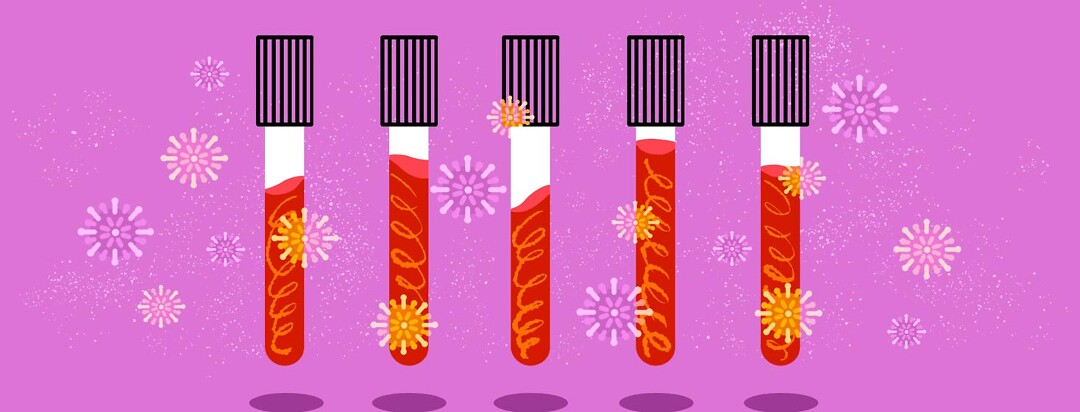Why Is Testing for HIV and STIs So Important?
Fear is a real emotion. I have been an HIV tester in Philadelphia since 2002. In my experience, the main emotion that motivates and/or deters people from getting tested is fear. The majority of people that get tested are getting tested because they fear that they’ve been exposed to HIV during their past sexual encounters. But people who choose not to get tested also do it because of fear.
Featured Forum
View all responsesFear is real
It’s unfortunate that fear of knowing your status is the main reason people don’t get tested. The majority of people that get tested are NOT diagnosed with HIV. But if you are diagnosed HIV, this is the most important step. Getting tested will help you know your HIV status, start treatment, and hopefully become undetectable. It will also empower you to protect your immune health, the health of your sexual partners, and our local communities!
STI and HIV rates
According to the latest Philadelphia Department of Public Health (PDPH) 2018 HIV Surveillance Report, HIV rates in Philadelphia have gone down 14.3 percent from 2017, and approximately 19,011 individuals are living with HIV in Philadelphia. This sharp decline is in part due to increased HIV testing and HIV treatment!1
Community Poll
Did you know we have discussion forums?
Potential transmission risk
Despite advances in medicine and education, 1 in 7 people living with HIV still do not know their status, leading to potential transmission and risk to their sexual partners.6 In Philadelphia, we are experiencing some of the highest rates of STI infections in America. Local chlamydia and gonorrhea rates are more than double the national average.3 We are living in a city that has HIV rates that are comparable to regions in sub-Saharan Africa.
Factors that contribute to these rates
For these reasons, and more related to socioeconomics, behavioral health, and perceived risk, your chances of contracting HIV and STIs in Philadelphia are 50% higher than residents in New York City!5
Featured Forum
View all responsesRisk for HIV and other STIs
Who is at risk? Everyone that is sexually active, though data suggests some groups are contracting HIV and STIs at higher rates. For example:
- Black and Latina women are 6 to 7 times more likely than white women to contract HIV;
- Black and Latino men are 3 times more likely than white men to contract HIV; and,
- new HIV infections are highest (68.3 percent) amongst black men who have sex with men (BMSM),
- and youth ages 13-24 represent 20 percent of all new HIV infections.3
Community Poll
Have you helped someone with HIV testing recently?
The importance of testing
The good news is, there are several options for you to protect yourself. First, we must be vigilant about our sexual health and know our sexual health status. Testing for HIV and screening for STIs is a powerful tool in the fight against HIV/STIs as well as a critical step in protecting your own sexual health. Knowledge is power. Knowing your and your partner’s HIV/STI status is key to protecting yourself and your sexual partners. If anyone in your sexual network has HIV or STI(s), your risk increases drastically. It’s all about exposure and contact!
PrEP and PEP for HIV prevention
In addition to testing, there are other ways to help protect yourself. Today, we have powerful biomedical tools called PrEP and PEP to effectively prevent HIV infection. When taken consistently, Pre-exposure prophylaxis (PrEP) reduces the risk of HIV infection through sex by about 99 percent. Post-exposure prophylaxis (PEP) is a 28-day antiretroviral regimen to prevent HIV infection after exposure to HIV but must be taken within 72 hours at 80 percent efficacy.4
Risk networks overlap. We are all in this together. What we do to put ourselves at risk or reduce our risk of contracting HIV and STIs impacts everyone around us. The easiest and fastest way (only 60 seconds with some HIV tests) to protect yourself and your community is to get tested! HIV and STI testing are often free or low cost.2
To locate your nearest HIV testing, PrEP, PEP, and HIV care provider near you, visit the HIV testing locator.
Community Poll
Have you ever been unhoused or insecurely housed?

Join the conversation